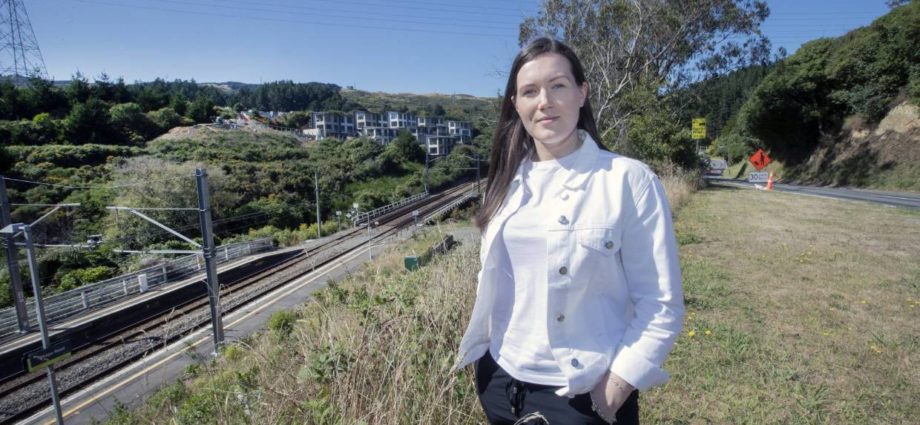PHOTO: MONIQUE FORD / STUFF Brooke van Velden had nearly secured her first home, and was told to buy curtains, when a sunset clause saw her agreement cancelled. Pictured with the development in the background.
OPINION: I moved this month; newly committed to a 12-month lease for a flat in Brooklyn. This one’s nice and all, with a great Wellington harbour view, but it doesn’t have the double glazing, new kitchen, and modern finishing touches I was looking forward to. Importantly, it’s not mine. I don’t own it.
Towards the end of 2018, I signed a sale and purchase agreement for a two-bedroom, one-bathroom, 70-square metre home in a new development in Tawa. The home ticked all the boxes. It was well positioned for afternoon sun and stood a stone’s throw from the local supermarket and first train stop out of Wellington.
A few weeks ago the contract was torn up by developers and the home relisted for close to $100,000 more than a year ago. I had a sunset clause. It allowed both parties to end the deal if the home hadn’t been completed by specific deadlines. I wouldn’t have signed the agreement without it. I’d read the horror stories about people being unable to get their money back from stalled or failed housing developments.
I’d also done some research. While the real estate agent’s advertisement assured me the development was nearing completion, there wasn’t much activity on site. Some units, including the one I was interested in, were already in place. Others waited on a nearby plot of land to be moved on site.
READ MORE VIA STUFF
















